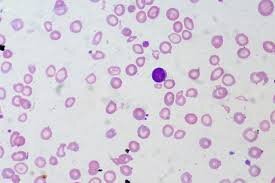Anemia has been defined as a reduction in one or more of the major red blood cell (RBC) measurements obtained as a part of the complete blood count:
Hemoglobin (“Hgb”), the chief protein in RBCs and bound to iron, is the major transporter of oxygen to the tissues;
Hematocrit (“HCT”) is the percent of whole blood that is occupied by intact red blood cells; and
RBC count is the number of red blood cells contained in a specified volume of whole blood.
Symptoms related to anemia may occur for two reasons. The first is due to decreased oxygen delivery to tissues because of low hemoglobin content. In this context, the total volume of blood delivered to the organs (as well as blood pressure) remain normal, but the lack of sufficient RBCs and hemoglobin in that blood result in insufficient oxygen delivery to the tissues in the body. The second cause of symptomatic anemia occurs in the setting of acute and marked bleeding, resulting in a marked decrease of not only RBCs but in the total blood volume (quantity of blood circulating). This results in an acute drop in blood pressure and blood flow to vital organs.
Iron deficiency anemia medical expert witness specialties include hematology, internal medicine, hospitalist medicine, pediatric hospitalist medicine, heart failure cardiology, cardiac electrophysiology, and cardiology pediatrics.

